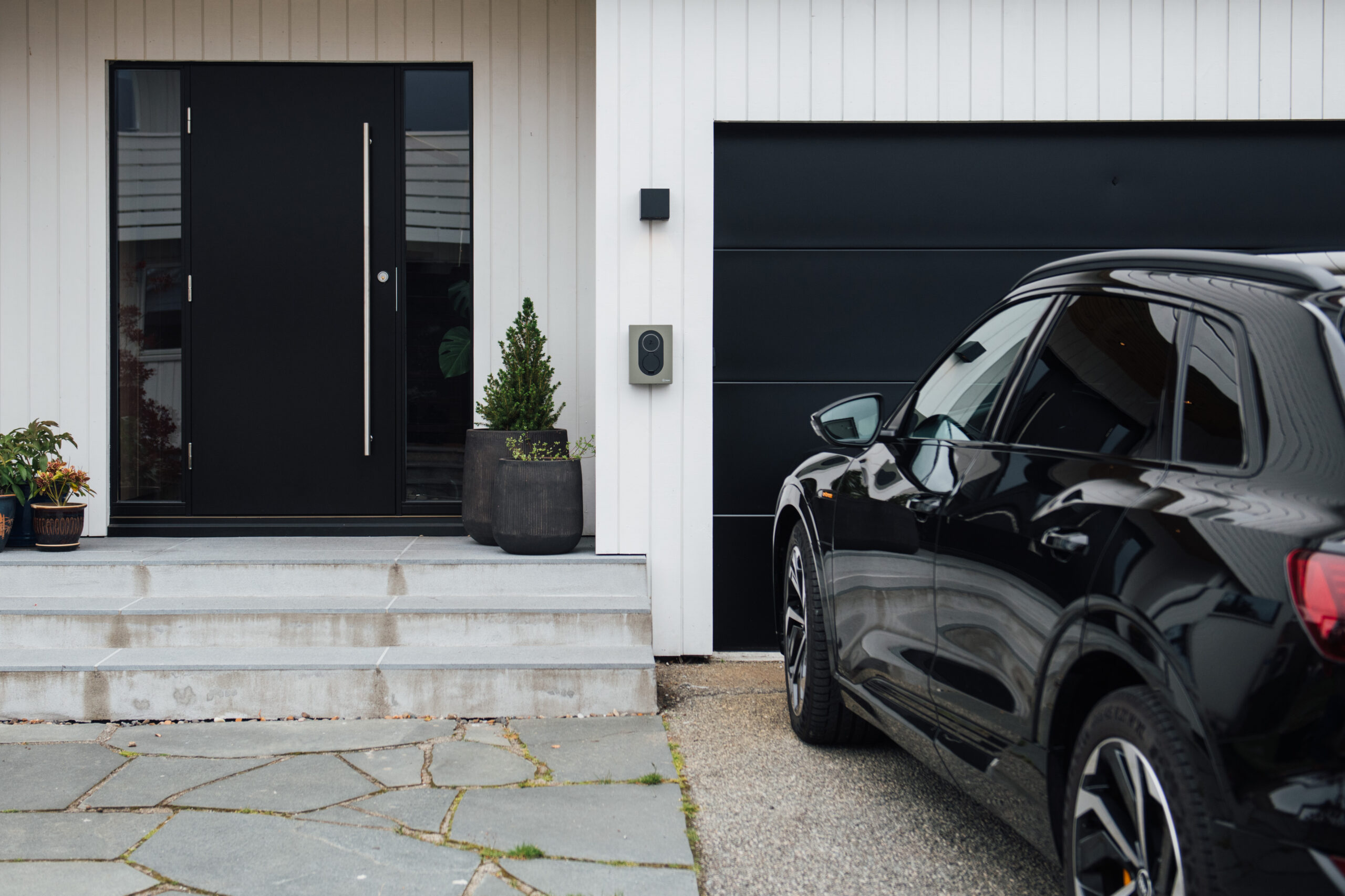The demand for electric car charging facilities is growing and many housing cooperatives are considering investing in charging systems. The challenge is often to find a fair way to share the cost.
In step with the rapid growth in the number of electric cars on Norwegian roads, the demand for housing with charging facilities is also growing. For housing cooperatives throughout the country, this means that reliable charging systems for electric cars are becoming a necessity, not a choice.
The main challenge is to find the right charging solution, one that meets the needs of residents, with a fair cost model and the efficient use of power grid capacity.
As is often the case, the answer is found in a smart charging system.
Fredrik Hegland, project manager for electric cars at the contracting firm Roxel, and Njål Nessa, special advisor at the Bate housing development and management association, often assist their customers in finding good solutions for electric vehicle charging.
In this article, these two experts explain why they always recommend investing in smart, future-oriented charging solutions.
Fair distribution of cost
One of the first and biggest questions asked when a housing cooperative considers investing in electric car chargers is cost. The cost of the infrastructure itself – and what this will cost the board and residents – is one thing, but even more important is how the cost of the charging stations and consumption will be shared.
Not surprisingly, petrol and diesel car owners (who do not plan to purchase an electric car) have little interest in paying to charge their neighbour’s electric car and differences in opinion have led to the shelving of proposals on numerous occasions.
But a smart electric car charger enables the board to skip such problems.
Smart chargers give the board complete control over the consumption of every individual electric car owner in the cooperative and, consequently, can charge individuals for usage. It is only natural that the board covers the cost of the infrastructure, since this is something that benefits all residents, believes Nessa.
Most agree that the fairest solution is that those residents who actually have an electric car pay a larger part of the bill. The board covers the cost of the infrastructure, while the residents pay for their smart charging station and the electricity they use. They pay a little more there and then, but will save in the long term through shared costs, adds Hegland.
Increased value for all residents in the cooperative
The reason that both Nessa and Hegland point out that the housing cooperative board should cover the costs associated with the charging station’s infrastructure is simple: It contributes to an increase in the value and attractiveness of all homes in the cooperative.
We clearly see an increased demand for car charging facilities and I have experienced on several occasions that potential buyers have decided against the purchase because of the lack of such a possibility. Whether or not a charging station is available is not especially important, but the demand in the market for infrastructure is increasing, says Bate’s special advisor.
There is clearly a direct increase in value corresponding to the price of the charging station, but it is the infrastructure itself that provides the greatest benefit. It makes the housing more attractive to more potential buyers and can lead to more participants in the bidding round, says the project manager for electric cars at Roxel.
And more interested parties could mean a faster sale and higher price, agree the two experts.

Better usage of capacity
While infrastructure plays the most important role in terms of housing value, the choice of charging station is decisive when it comes to the effective use of the capacity of the power grid – which is where the smart charging stations come in.
Smart charging systems can measure how much capacity is used and how much remains in relation to the main fuse and utilise this to balance and distribute the available power between all connected vehicles.
The best charging systems can contribute to up to 66 percent more effective use of the available power, which means that all vehicles receive the exact amount of power and effect they require at almost all times.
Some people we have talked to have expressed a desire to have 22 kW available for every parking spot at all times. This is both unrealistic and unnecessary – not to mention costly – if not everyone in the cooperative owns a Tesla and need to recharge at the exact same time, explains Hegland.
The effective use of the existing capacity is an important argument for choosing a smart charging solution. If you end up in a situation in which you need to increase the power capacity at the cooperative, this can become very costly very quickly, stresses Nessa.
Safe charging of electric cars
The price tag can also be high if you have numerous electric cars connected to the power grid and the main fuse in the cooperative through normal power outlets and improvised charging solutions.
Improper use can overload the power grid and increase the risk of fire.
The DSB (Norwegian Directorate for Civil Protection) advises against charging with a normal power outlet and the user manual of most electric cars states that the cable is intended for emergency charging and not regular use, Hegland points out.
When you install a modern, smart charging station, you eliminate the risk of fire. You also avoid an overload of the power system, comments Nessa.

Facilitating the future
Even though the installation of the infrastructure and charging stations is less expensive than what many boards fear, it is still a considerable investment for the housing cooperative. One question that arises is therefore whether a charging system bought today will be obsolete in five years’ time, when new and more powerful electric cars are available in the market.
This is a main argument for smart chargers. They are equipped for the future and can be upgraded and have new functions added without having to replace the charging box itself, says Roxel’s experienced project manager, who then adds,
I also believe that many people are not quite focusing on the right things. Yes, there will be more powerful electric cars in the years to come, but will you be driving more? Don’t just focus blindly on how much charging the car requires, but how much you drive.
Nessa believes that Bate’s customers generally accept the fact that smart car chargers are a necessity today.
If systems become available for wireless charging and the like in the future, the charging boxes installed today will keep up such developments and can be used in the foreseeable future as a result, he believes.
Zaptec’s charging system recommended
Roxel is pleased to work together with Zaptec and Hegland does not hesitate to recommend the Norwegian-produced smart charging system to his customers.
Many of our customers have heard of Zaptec and like the idea that their chargers are made here in Norway. There is a certain amount of pride in supporting Norwegian interests, but it is also an advantage to those of us doing the installation, says Hegland and explains,
When we talk to a Norwegian manufacturer, we have significant influence as an installer. Our experience has been that Zaptec is interested in what we have to say and this lets us contribute to making the charger a little better and installation and any repairs a little faster. It also results in cost savings for our customers.
Nessa and Bate share Hegland’s positive impression of Zaptec.
We recommend to all of our customers to facilitate for safe and futureproof charging and that Zaptec’s solution is an excellent choice, says Nessa.
The greatest advantage of the Zaptec charger is that it is produced in Norway, built for the Norwegian market and meets Norwegian requirements. Here in Stavanger, where we are headquartered, everyone is familiar with Zaptec and knows they can be trusted. I have only heard about positive experiences with their products, concludes Bate’s special adviser.

Njål Nessa
Special advisor - BATE housing development and management association

Fredrik Hegland
Project manager for electric cars - ROXEL TEKNISKE AS


